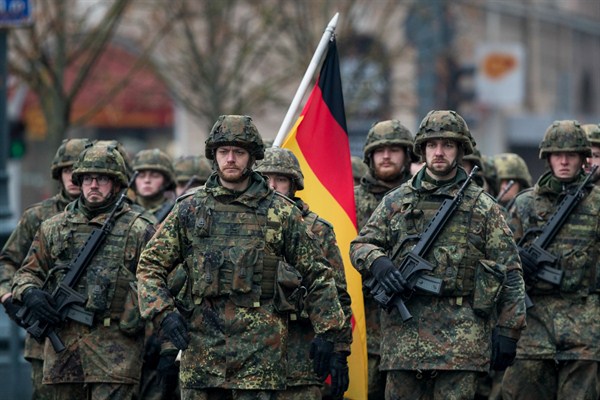A report released on Feb. 20 by the parliamentary commissioner for Germany’s armed forces revealed serious deficiencies in the military’s readiness, with many weapons systems nonoperational and 21,000 officer positions vacant. The state of the German military raises concerns for NATO and its response force, the effectiveness of which has gained new urgency since Russia’s intervention in Ukraine in 2014. In an email interview, Patrick Keller, coordinator for foreign and security policy at Konrad-Adenaur-Stiftung in Berlin, explains how Germany’s military got to this state, and what it will take to get its house in order.
WPR: How concerning for Germany is its military’s lack of readiness, and what has led its armed forces to this point of disarray?
Patrick Keller: Military experts and insiders, including the former army chief of staff, Bruno Kasdorf, who departed in 2015, have voiced concern over Germany’s lack of military readiness for many years. Today, as the problems keep mounting, even high-ranking politicians, such as the parliamentary commissioner for the armed forces and the chairman of the foreign relations committee, are expressing their concern in more drastic terms.

